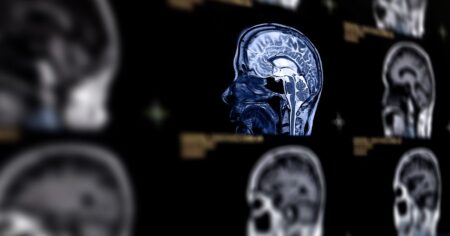- Not getting enough sleep can increase a person’s risk for several health issues.
- Previous research shows certain lifestyle changes can improve a person’s sleep quality, including increasing daily activity.
- Researchers from Reykjavik University in Iceland found that people who persistently exercised at least two or more times a week had a lower insomnia risk and an easier time getting six to nine hours of sleep each night.
Sleeping issues are a common concern around the world. Researchers
Not getting enough quality sleep each night can heighten a person’s risk for several health conditions including
The good news is that previous research shows there are ways to improve a person’s sleep quality, including eating a
Adding to this body of knowledge are researchers from Reykjavik University in Iceland who have found people who persistently exercised at least two or more times a week had a lower insomnia risk and had an easier time getting six to nine hours of sleep each night.
The study was recently published in the journal BMJ Open.
According to Dr. Erla Björnsdóttir, professor and researcher in the Department of Psychology at Reykjavik University in Iceland and lead author of this study, exercise is widely recognized as a key component of a healthy lifestyle, with numerous physical and mental health benefits.
“Given the significant overlap between physical activity levels and sleep quality, I was intrigued by the potential for exercise to positively influence sleep outcomes in individuals with insomnia,” Björnsdóttir told Medical News Today.
“While there is growing evidence supporting the efficacy of
“Ultimately, the decision to study the relationship between exercise and insomnia risk was driven by a desire to improve treatment outcomes, expand treatment options, and promote holistic approaches to sleep health and mental well-being,” she continued.
“Through research in this area, I aim to empower individuals with insomnia to take an active role in their treatment and enhance their overall quality of life,” she added.
For this study, Björnsdóttir and her team accessed data from 4,339 participants of the European Community Respiratory Health Survey. These study participants answered questions regarding their physical activity at baseline and then questions on their physical activity, insomnia symptoms, sleep duration, and daytime sleepiness during a 10-year follow-up.
Researchers discovered that participants who exercised at least two or more times a week were 42% less likely to have issues falling asleep. Additionally, 22% of those participants were less likely to have insomnia symptoms and 40% were unlikely to report two or three insomnia symptoms.
“While I wasn’t entirely surprised by the findings regarding the positive impact of regular exercise on sleep quality, the magnitude of the effects observed in our study did offer some intriguing insights,” Björnsdóttir said.
“Exercise has long been recognized as a cornerstone of a healthy lifestyle, with a myriad of physiological and psychological benefits. Given its role in promoting relaxation, reducing stress, and regulating circadian rhythms, it stands to reason that regular physical activity would correlate with improved sleep outcomes.”
— Erla Björnsdóttir
“However, the extent to which exercise frequency correlated with reductions in insomnia symptoms was noteworthy,” she continued.
“The robust associations observed between exercising at least two or more times a week and lower rates of difficulty falling asleep, insomnia symptoms, and overall sleep disturbances underscore the importance of regular exercise as a potential intervention for sleep issues,” she said.
Scientists also found that study participants who were consistently active were 55% more likely to be normal sleepers.
“This finding underscores the profound impact of consistent physical activity on sleep health and highlights the potential of exercise as a powerful tool for promoting optimal sleep outcomes,” Björnsdóttir explained.
“Moreover, the magnitude of the observed effect — a 55% increase in the likelihood of being a normal sleeper among persistently active individuals — underscores the robustness of the relationship between exercise and sleep quality. This suggests that making regular physical activity a priority in one’s lifestyle may offer substantial benefits for achieving and maintaining healthy sleep patterns.”
— Erla Björnsdóttir
“From a clinical perspective, these findings have significant implications for the prevention and management of sleep disorders, including insomnia and sleep disturbances. Incorporating exercise interventions into sleep hygiene protocols and treatment plans may enhance the effectiveness of existing therapies and provide additional avenues for improving sleep outcomes,” she added.
During their analysis, the research team also factored in body mass index (BMI) and smoking history and how it may impact the effect of exercise on sleep quality, which Björnsdóttir said is important because individual differences and health status can impact how exercise affects sleep.
“By highlighting the significant impact of lifestyle factors such as BMI and smoking on sleep quality, our research underscores the importance of addressing these factors as part of comprehensive patient care,” she continued.
“Our findings highlight the interconnectedness of various lifestyle factors and their influence on sleep quality. Physicians may adopt a holistic approach to patient care that addresses not only sleep hygiene, but also other lifestyle factors that impact sleep, such as diet, exercise, stress management, and mental health,” Björnsdóttir said.
“Our research informs doctors about the importance of addressing lifestyle factors such as BMI and smoking in discussions about sleep health with their patients. By integrating this knowledge into clinical practice, physicians can play a crucial role in promoting healthy sleep habits and improving overall patient well-being.”
— Erla Björnsdóttir
After reviewing this study, Dr. Monique May, a board certified family physician for Aeroflow Sleep, told MNT that the findings were not surprising.
“Regular exercise does a body good in a variety of ways, and sleep is no (different). Even when factors such as BMI and smoking status were taken into consideration, the fact remained that those who exercised regularly were more likely to be normal sleepers, meaning they got the recommended six to nine hours of sleep per night,” May explained.
“It was also interesting that, for the purpose of this study, participants only had to exercise two or more times per week, for at least one hour per week, to be considered physically active,” she continued.
“This goal (exercising two or more times per week, for at least one hour per week) may seem more attainable to some people, rather than the minimum of
150 minutes per week of moderate-intensity exercise that is currently recommended. I think the main point here is that movement, at some level and some regularity, has a positive impact on sleep quality.”
— Dr. Monique May
MNT also spoke with Dr. Vernon Williams, a board certified neurologist, sports neurologist, and founding director of the Center for Sports Neurology and Pain Medicine at Cedars-Sinai Kerlan-Jobe Institute in Los Angeles, who commented that high quality sleep is critical to our survival.
“Sleep has long been known by the medical, scientific, and neurological community to have a significant impact on health across the lifespan, including its role in optimizing brain function. A lack of consistently adequate sleep doesn’t just make us tired; it has a significantly negative impact on our brain and overall health,” Williams said.
“Exercise is known to improve the speed at which individuals fall asleep and improve sleep quality — although exercise too close to bedtime can impair sleep onset,” he continued.
“Sleep is not simply a ‘brain rest’ state — there are active physiologic processes taking place in the body that require sleep, particularly its relationship to circadian rhythms. These processes affect nearly every cell, organ, and system in the body. Restoration and maintenance require sleep and benefit most from optimized sleep.”
— Dr. Vernon Williams
Read the full article here











